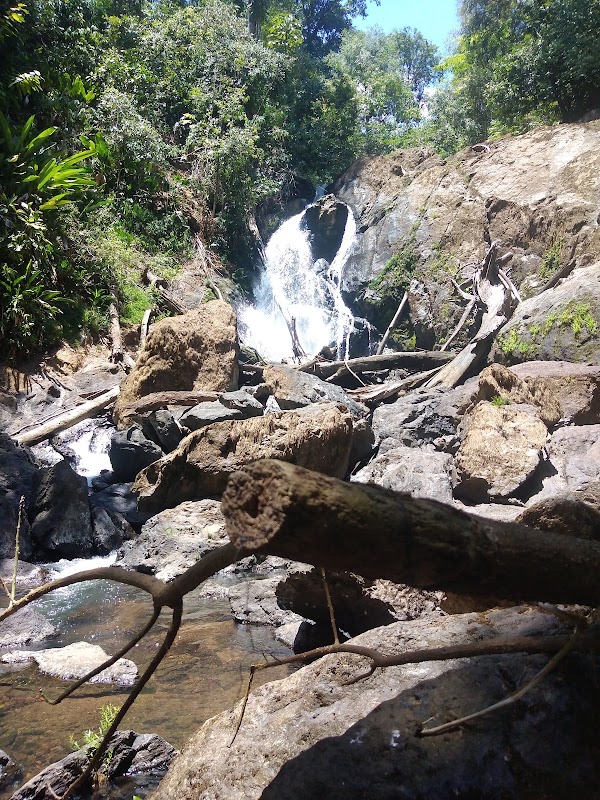Untamed Trails and Wildlife Wonders: Hiking Corcovado National Park From Puerto Jiménez
Explore the raw, electrifying trails of Corcovado National Park from Puerto Jiménez, where every step plunges you deeper into one of the most biologically intense rainforests on earth. This guide balances the thrill of rugged adventure with clear, practical advice for hikers and wildlife spotters ready to engage with the park’s untamed character.
Hydrate and Purify
Always carry at least two liters of water and bring purification tablets or a filter as natural sources near trails can harbor pathogens.
Choose Footwear with Grip
Opt for sturdy hiking boots with ankle support and deep treads to handle slippery roots, mud, and rocky river crossings.
Start Early to Maximize Wildlife Sightings
Begin hikes at dawn when animal activity peaks and temperatures remain manageable, reducing your risk of heat exhaustion.
Hire a Knowledgeable Local Guide
Guides enhance safety and increase chances of spotting elusive wildlife, providing insights inaccessible to solo hikers.
Untamed Trails and Wildlife Wonders: Hiking Corcovado National Park From Puerto Jiménez
Corcovado National Park on Costa Rica's Osa Peninsula is an uncompromising arena for outdoor adventurers and wildlife watchers. Starting from Puerto Jiménez, the gateway town perched at the edge of wilderness, you step onto trails that challenge your endurance while rewarding you with encounters rarely matched elsewhere in Central America.
The Sirena Station Trail is the backbone of Corcovado’s hiking experience. Spanning roughly 24 kilometers (15 miles) one way, expect dense rainforest paths that climb with intermittent elevation gains up to 150 meters. The terrain presses upon you—a tangle of roots to navigate, mud that dares your footing—yet it opens onto spectacular river crossings with currents pushing forward, demanding your attention. En route, the forest performs a living concert: the tapir’s cautious rustle, toucans flaunting their color, and howler monkeys marking territory with guttural calls.
For a shorter loop with rich wildlife prospects, the San Pedrillo Trail is a 13-kilometer round trip from Sirena. It offers glimpses of scarlet macaws swooping between towering trees and the chance to spot shy jaguarundi cats slipping through shadowed undergrowth. This trail’s moderate elevation gain is forgiving but requires steady footing on wet rocks and uneven roots.
Practically, water is your constant companion and adversary. Streams are both hydration sources and obstacles—carry at least two liters and treat water if unsure. Footwear with deep tread and ankle support is non-negotiable; rainy season mud can slow your pace quickly. Dawn departures avoid midday heat and maximize wildlife activity. Guides are mandatory within park boundaries, and their insights often turn encounters from random sightings into meaningful connections with the ecosystem.
Beyond trails, the dense mangroves and beaches near Puerto Jiménez provide quieter exploration options. The Corcovado coastline shifts with tides that aggressively erase footprints, a reminder that nature here is fiercely itself—ever reshaping and refusing to be tamed.
Gear up smartly, respect the park’s rhythm, and prepare to meet a wilderness that is alive, alert, and demanding your respect and awareness. This isn’t just hiking—it’s an immersion in a world that will test your resolve but reward you with its raw beauty and wild inhabitants.
Nearby Trips
All Adventures
Boat Charters
Water Activities
Adventures near Puerto Jiménez
Discover the unique and memorable adventures that make Puerto Jiménez special.
Frequently Asked Questions
Do I need a guide to hike in Corcovado National Park?
Yes, park regulations mandate hiring a certified local guide. Guides not only ensure safety in challenging terrain but also help spot elusive wildlife and navigate the complex trail network.
What kind of wildlife can I expect to see during hikes?
Expect to see tapirs, scarlet macaws, howler monkeys, coatis, and if lucky, elusive cats like jaguarundis. Early mornings and late afternoons offer the best chances for sightings.
Are there any dangerous animals I should be aware of?
While the park houses venomous snakes and large mammals, attacks are rare if you stay on the trails and follow guide instructions. Always be cautious around wildlife to avoid provoking them.
How physically demanding are the trails from Puerto Jiménez?
Trails range from moderate to challenging, requiring good fitness due to lengths of 10-15 miles, uneven and slippery terrain, as well as tropical heat and humidity.
Can I hike these trails year-round?
Yes, but best conditions are during the dry season from December to April. Rainy months bring slippery trails and stronger river currents, so proper gear and timing are critical.
Is night hiking allowed in Corcovado?
No, night hiking is prohibited due to safety concerns and to protect nocturnal wildlife.
Recommended Gear
Sturdy Waterproof Hiking Boots
Protect ankles and provide good traction for muddy, rocky, and wet terrain.
Lightweight Rain Jacket
Essential for sudden tropical rains that can come without warning.
Water Purification System
Enables safe hydration from natural water sources encountered on trails.
Insect Repellent with DEET
Keeps mosquitoes and other biting insects at bay, especially important in humid rainforest conditions.
Local Insights
Hidden Gems
- "The Playa Universidad mangrove boardwalk near Puerto Jiménez offers close-up views of crabs and wading birds without a strenuous hike."
- "The Cerro San Pedrillo viewpoint provides sweeping views of the Pacific coastline rarely crowded by visitors."
Wildlife
- "Scarlet macaws are particularly active near Sirena station; their loud calls often lead explorers to nesting sites."
- "River otters play near the water's edge, especially in quieter tributaries where currents swirl gently."
History
"Corcovado was declared a National Park in 1975 as part of a government initiative to protect Costa Rica’s last large intact rainforest, an effort driven by conservation pioneers recognizing the region's global biological importance."

